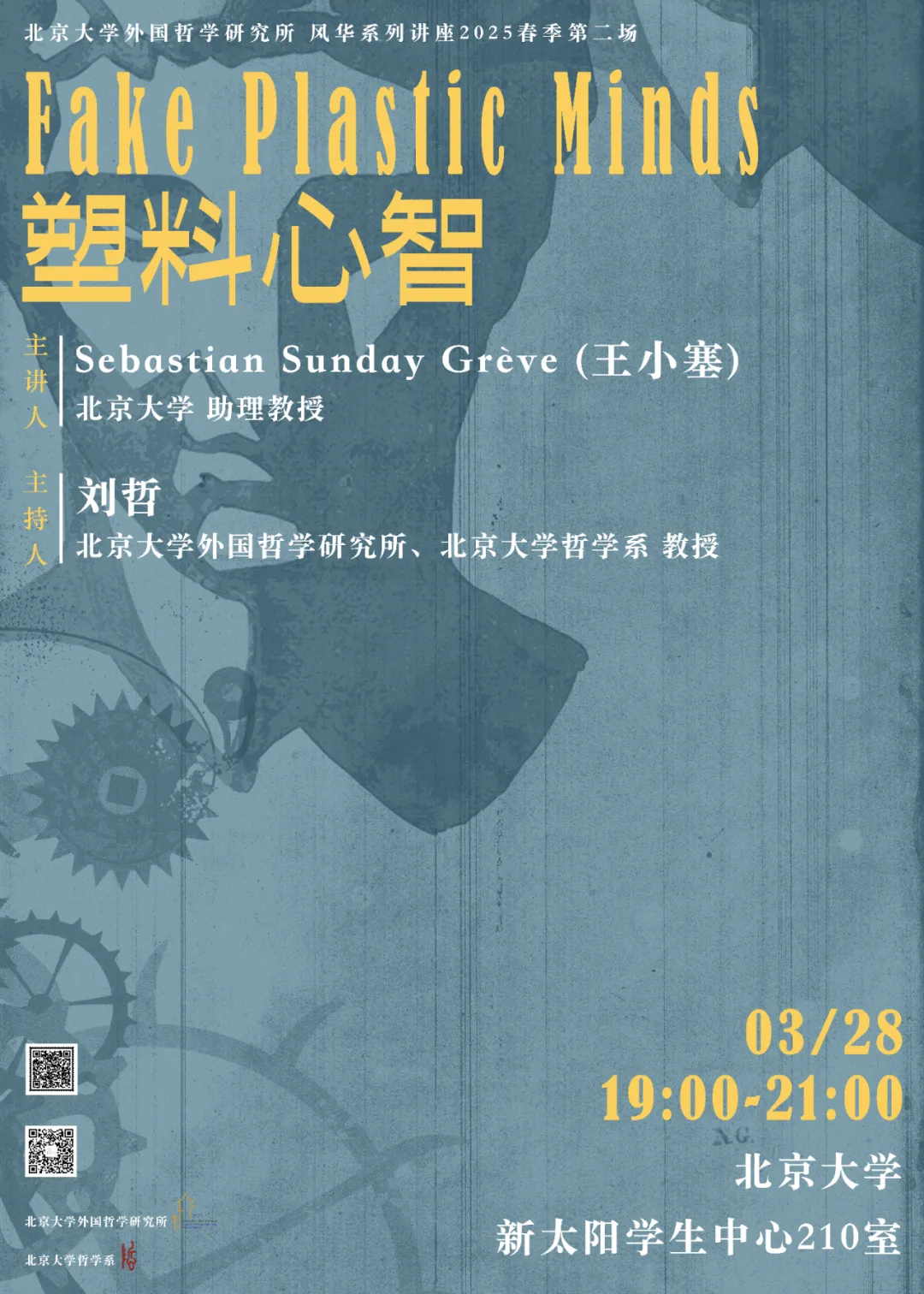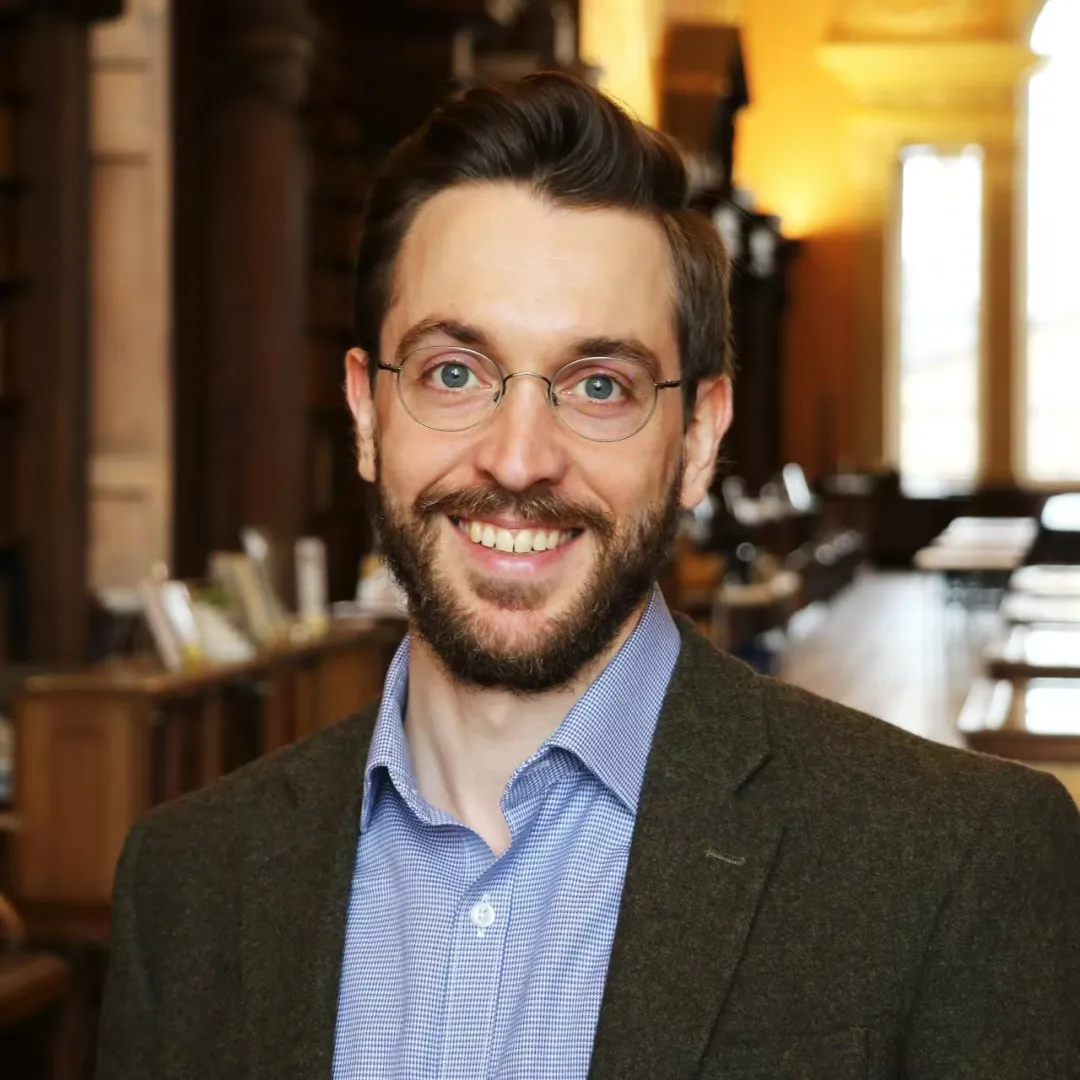03.28: 风华系列讲座2025春季第二场:Fake Plastic Minds

讲座信息
主题:
Fake Plastic Minds(塑料心智)主讲人:
Sebastian Sunday Grève (王小塞)
主持人:刘哲
北京大学外国哲学研究所、北京大学哲学系 教授
讲座时间:
2025年3月28日 周五 19:00-21:00
讲座地点:北京大学新太阳学生中心210室
讲座方式:
(1)现场参与。本次讲座对高校及科研机构哲学专业的在师生开放,欢迎感兴趣的师友报名,到现场讨论交流。
(2)线上直播。请关注“北京大学哲学系”视频号收看直播。
主办单位:
北京大学外国哲学研究所
北京大学哲学系
主讲人:Sebastian Sunday Grève (王小塞)

主持人:刘哲

讲座摘要
This paper presents an argument to the conclusion that machines can acquire human mindedness, that is, they can be intelligent, conscious, sentient, etc. in precisely the way that a human being typically is. Machines are defined here as digital computers—i.e., the same type of engineered and programmed artefact as the vast majority of our modern-day computing devices—with the additional condition that these artefacts must be primarily made from non-organic materials such as silicon or plastic. Following a brief review of the history of the type of argument advanced here, a thought experiment is presented and analysed, culminating in the aforementioned conclusion. That conclusion is then defended against a number of objections.



